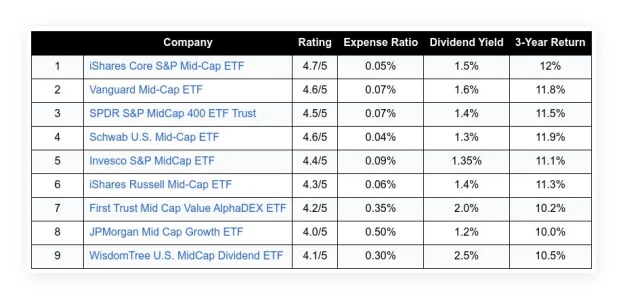Think about how you were introduced in the past. It was probably related to your work. “She’s a lawyer.” “He runs his own marketing company.” In other words, what you did wasn’t just your job title; it was who you were. In fact, Pew Research found that almost four in ten workers (39%) say their job or career plays a significant role in who they are.
And now? It’s not.
Perhaps you retired. You may have sold your business. Burnout may have forced you to take a break. Regardless of the reason, one day you woke up and noticed you no longer had a title above your name.
So, who are you now?
Welcome to the world of the Un-Resume. In this space, your value isn’t summed up by bullet points on LinkedIn or polished elevator pitches. It isn’t about your past accomplishments. It’s all about who you’re becoming.
Table of Contents
ToggleThe Identity Trap of High-Achievers
It’s no secret that modern work culture rewards hustle. Busyness is a badge of honor for us. As a result, our titles become shorthand for our intelligence, ambition, and relevance. When a culture values output over introspection, it’s easy to confuse identity with activity.
But when the meetings stop, the emails stop coming, and no one expects a quarterly report from you, there’s a void. Many people find that terrifying, not liberating.
Losing a job title (even by choice) can feel like losing self-worth, status, and purpose. It wasn’t just a paycheck for entrepreneurs, executives, and creatives. It was who you were.
The Problem With Defining Yourself by Your Work
There’s nothing wrong with being immensely proud of your career accomplishments, your impact, or your expertise. But it becomes a problem when your professional role or achievements replace your entire sense of self.
When someone detaches from their work-based identity, what often happens is;
- Existential confusion sets in. Suddenly, self-questioning emerges, manifesting in questions like, “If I’m not a founder/teacher/lawyer anymore, then what exactly am I?”
- Loss of community. Having no immediate, daily social fabric leads to feelings of isolation and a diminished sense of belonging.
- Restlessness or guilt. Instead of being able to relax, pursue hobbies, or simply be, you find yourself plagued by unsettling restlessness or guilt, convinced that you should be active.
- Fear of irrelevance. It’s possible to develop a creeping, unsettling worry that you’ve surpassed your peak, that your best years are behind you, or that you are just no longer important or valued.
This isn’t just emotional fluff. According to research, retirement, unemployment, and career pivots are among the most stressful life events. Because of this, some individuals experience unmotivation, anxiety, or depression.
Despite this transition, your story is not over. It’s the beginning of a new chapter.
What If Your Value Isn’t What You Produce?
Imagine a version of yourself without your professional title. Suppose you were introduced to the world and yourself from a completely different angle?
Consider responding based on the following instead of the familiar “I’m a [former title]” answer;
- What genuinely interests me? Are there any topics, ideas, or skills that I wish to explore purely for the sake of learning?
- Is there anything that truly lights me up? What activities, interactions, or creative pursuits give me genuine joy and energy?
- What kind of conversations do I enjoy having? Is there anything that stimulates my mind and connects me deeply with others?
- Who do I want to become now consciously? In this new phase of my life, what qualities, traits, or aspects of my character do I want to cultivate and embody?
Embracing the Un-Resume mindset means defining your worth not by what you do for a living, but by how you live, the authentic impact you have on others, and the joy you cultivate every day. It’s a profound and often challenging shift in a world obsessed with external productivity.
Step 1: Let Yourself Grieve the Ending
Leaving behind a meaningful career, even one you feel ready to leave, is still a profound loss. This needs to be acknowledged. Permit yourself to grieve. Take pride in the contributions you made, the identity you built, and the routines you cherished. Share your feelings with trusted friends, family, or professionals who can empathize and understand. It’s okay to feel uncertain, unsteady, or even profoundly sad, even if you made the conscious decision to leave.
Creating a “career eulogy” can be a powerful exercise. Consider what you are most proud of, the skills you mastered, the colleagues you connected with, and what you are now truly ready to let go of. By doing this emotional bookkeeping, we can process the past and make room for what lies ahead.
Step 2: Audit the Non-Work Parts of You
Is there anything intrinsically meaningful left when you remove the business card, LinkedIn profile, and professional facade? It’s not about finding a new “job,” but about discovering neglected parts of yourself.
Here are some introspective prompts to get you started;
- Relationships. When I have more time, with whom (family, friends, mentors) do I want to spend it?
- Health. How do I truly want my body to feel daily? How do I prioritize mental and physical well-being?
- Play. When was the last time I engaged in an activity solely for its own sake, without any expectation of results or productivity? Where do I find genuine joy and lightness?
- Contribution. Without a title, a paycheck, or external validation, where can I offer my unique skills, wisdom, and energy to help others?
You shouldn’t use this list to allocate your “leisure time” to tasks. Instead, it’s a profound tool for self-awareness — an honest assessment of your deepest desires and untapped potential.
Step 3: Rebuild Identity Through Values, Not Titles
Rather than anxiously pursuing a new title or role, consciously anchor your evolving identity in your deepest values. Regardless of any external role you hold, these are the principles, qualities, and beliefs you hold dearest.
Perhaps you now deeply value creativity, freedom, learning, genuine humor, or selfless service. By considering these rediscovered values, you will be able to organically guide your next steps and how you spend your time and energy.
Consider, for instance;
- In addition to mentoring young founders, a former corporate executive might join the board of a non-profit organization.
- If you’re a retired nurse committed to caring for others, you may consider volunteering as a grief counselor or as a new parent supporter.
- An ex-consultant who loves freedom and exploration might embark on a world tour and document their adventures through writing or photography.
The ultimate path forward doesn’t require replicating your old level of “success” or attaining a similar external status. The key is to align your time, energy, and choices with your authentic self.
Step 4: Experiment With Low-Stakes Exploration
You don’t need a fully articulated master plan or a complete “rebrand” in 30 days. There’s a risk that pressure could backfire.
Instead, treat this stage of life as a prototype phase. Engage in small, low-risk experiments and embrace curiosity, like;
- With no pressure to excel, consider auditing a class in something that genuinely interests you.
- For connection and exploration, consider joining a local writing group, volunteering for a shift, or participating in a community club.
- Spend two weeks without a strict schedule and observe what naturally emerges in terms of activities, rhythms, and interests.
- Whether it’s a blog, art project, or personal podcast, start something anonymously, detached from external expectations.
By detaching yourself from immediate outcomes or public recognition, you grant yourself the invaluable freedom to play, learn, grow, and explore without inhibition. It’s precisely here that true reinvention begins.
Step 5: Rewrite Your Story (Yes, Literally)
A practical and tangible way to embrace the Un-Resume mindset is to write yourself a new bio — one that has nothing to do with your previous profession.
Instead of a traditional, work-centric introduction, try: “I’m a retired CFO with extensive merger and acquisition experience.”
Based on your audit and values, create something that reflects your true self. For example, “I’m a curious traveler, an avid ceramicist, a grandmother, and a lifelong learner who believes that it’s never too late to start something new and discover unexpected joys.”
You should write multiple versions of your personal bio. Perhaps one for your closest friends, capturing your essence. A second could be for your inner self to remind you of your evolving identity daily. There’s also one for the amazing person you’re still discovering every day.
The goal here isn’t just to reframe your past accomplishments in a more positive light. It’s about allowing yourself to develop, expand, and grow authentically beyond the confines of your previous profession.
Final Thought: You Are More Than a Title
You are not your last job. It’s not your productivity score that defines you. You’re not a LinkedIn headline or a calendar size.
As a person, you have dreams, wounds, talents, quirks, and the ability to change directions frequently.
The Un-Resume invites you to drop the scripts, peel off the labels, and live from a deeper place. It cares deeply about what’s on your heart, not what’s on your business card.
Image Credit: Pixabay; Pexels

















